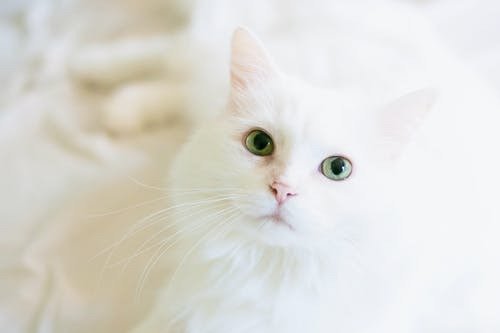As our beloved furry companions age, their immune systems can become less effective, making them more susceptible to illness. To help ensure a healthy and happy twilight period for our pets, pet owners must stay informed about the necessary vaccinations required in their golden years. Much like humans, senior pets need ongoing care and prevention measures to maintain their health, and vaccinations play a pivotal role in this process.
Navigating the Health Requirements of Aging Pets
Gone are the days when vaccinations were only necessary for puppies and kittens. As veterinary medicine advances, we now understand the importance of ongoing immunizations throughout a pet’s life, including their senior years.
These vaccinations are tailored to the aging pet’s lifestyle and the diseases they are more likely to encounter. Senior pets may not be as active as their younger counterparts, so their vaccinations are adjusted accordingly, emphasizing diseases they’re more prone to as they age.
Core Vaccinations for Senior Pets
Core vaccinations are essential for pets of all ages. These are the vaccines that every pet should receive to protect them against the most common and severe diseases.
-
Rabies is a fatal viral disease affecting all mammals, including humans.
-
Canine distemper – A viral disease in dogs that can cause severe respiratory, gastrointestinal, and nervous system symptoms.
-
Canine parvovirus – A highly contagious viral illness in dogs with a high mortality rate if untreated.
-
Feline distemper (panleukopenia) – A highly contagious viral disease in cats that can be fatal, especially in kittens and seniors.
Although the core vaccines tend to remain the same throughout a pet’s life, the frequency of vaccination may change as they age. Your vet can guide you on the appropriate schedule for your senior pet.
Non-Core Vaccinations for Older Pets
Beyond the core vaccines, non-core vaccinations may be recommended based on your pet’s lifestyle, environment, and risk factors. These vaccinations include:
-
Leptospirosis – A bacterial disease that can affect both pets and humans.
-
Bordetella – Also known as kennel cough, is highly contagious among dogs.
-
Lyme disease is transmitted by ticks that can cause joint pain and other symptoms.
-
Feline leukemia virus – A disease that affects the immune system of cats and can be recommended for outdoor or social cats.
Your vet will determine whether these non-core vaccines are necessary for your senior pet, often based on their exposure risks.
Vaccine Schedule Adjustments for Senior Pets
Typically, senior pets do not need vaccinations as frequently as younger pets. The adjustments in the vaccination schedule are due to the longer-lasting immunity that persists from vaccines given earlier in life. Many senior pets are moved to a 3-year vaccination schedule, which can vary based on the vaccine, health status, and lifestyle.
Titer Tests: An Alternative Assessment Tool
In some cases, vets may recommend titer tests for senior pets. Titer tests measure antibodies in the pet’s bloodstream, indicating immunity to certain diseases. The pet may not need a booster vaccine if the titer test shows sufficient immunity.
Geriatric Care for Pets
Apart from vaccinations, geriatric dog care includes many other preventative and proactive health measures. Senior pets need regular veterinary check-ups and might need adjustments in their diet, exercise routines, and living environment to accommodate any physical limitations or health conditions that come with age. Mobility aids, orthopedic beds, and appropriate nutrition are all part of a comprehensive geriatric care plan.
Veterinary Surgery and Senior Pets
Regarding East Bay Veterinary Clinic and similar veterinary practices, senior pets may sometimes require surgery. Whether it’s for removing tumors, correcting joint issues, or addressing dental problems, older pets need extra care before, during, and after any surgical procedure. The anesthesia risk is higher for them, and their recovery may take longer, requiring diligent care and attention.
Pet Vaccinations and Parasite Prevention
No article about pet vaccinations would be complete without addressing parasite prevention. Cat vaccinations, alongside flea, tick, and heartworm prevention, are fundamental for maintaining the health of feline companions. These preventatives are essential for ensuring that senior pets are not exposed to parasites physically but also for protecting them from the diseases that these parasites may carry.
Maintaining a Healthy Lifestyle for Senior Pets
A healthy lifestyle is the bedrock of longevity and well-being for our aging pets. Here are key points to ensure your senior pet stays at the peak of health:
-
Consistent Exercise: Adjust exercise routines to suit your senior pet’s physical capabilities.
-
Weight Management: Prevent obesity by managing diet and exercise to ease the strain on aging organs and joints.
-
Mental Stimulation: Keep your pet mentally engaged with puzzle toys and training to keep their mind sharp.
-
Social Interaction: Continue to nurture the pet’s social needs with gentle playdates and affection.
Working with Your Vet: The Best Approach to Senior Pet Vaccinations
Ultimately, the best vaccination plan for a senior pet is customized by a veterinarian who knows their medical history, lifestyle, and risks. Annual wellness exams are opportunities to discuss your pet’s health changes, concerns, and the necessity for vaccinations. These appointments serve as preventive care that can detect early disease signs and address age-related concerns.
Final Thoughts
In conclusion, vaccinations for senior pets are as much about prevention as maintaining the quality of life every pet deserves. By staying informed on the needs of your senior pets, you can protect them against preventable diseases and ensure their golden years are truly golden. Regular consultations with your veterinarian will keep you on the right track to giving your senior pet the care and protection they need to live a healthy and joyous life.

